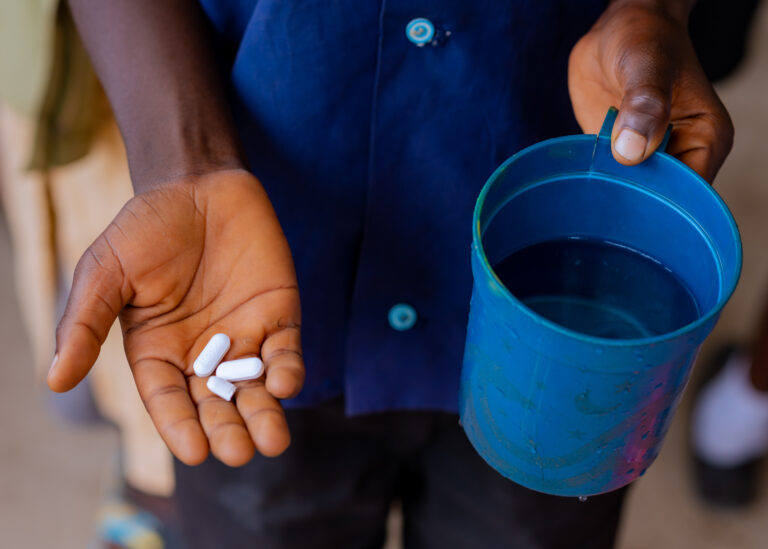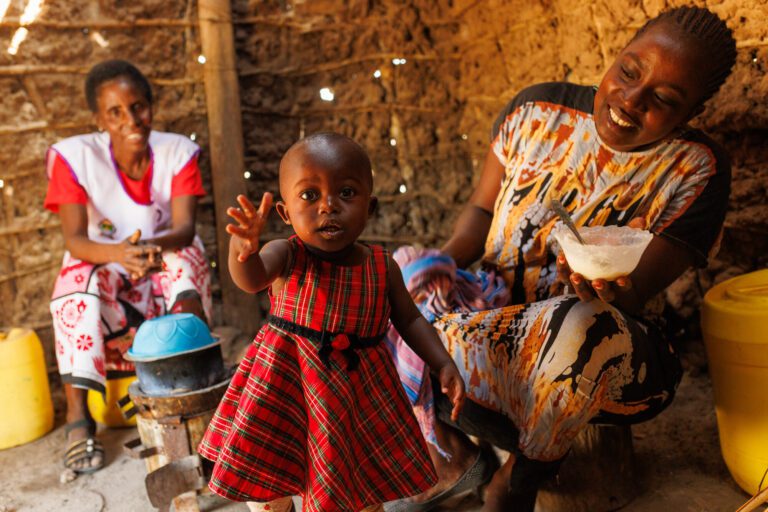Improving Vision Care in Cameroon
More than 26 million children and adults in Africa are living with some form of visual impairment. As many as 15 percent of these experience vision loss because of common refractive errors, such as near-sightedness or astigmatism, which can be corrected with a simple pair of eyeglasses. Although a majority of people with refractive error in North America and Asia are able to find care, most Africans are far less likely to have access to basic vision services.
In rural communities in Cameroon, for example, most eye health services are expensive, including the prescription of corrective lenses. Access is also very limited because there are almost no trained eye health clinicians working in such remote areas, and optical shops are few and far between. If parents suspect that their child may have vision problems, they must plan an expensive trip to the nearest hospital. And even if a family is fortunate enough to live relatively close to care, they often can’t afford services. As a result, families in Cameroon often put off seeking treatment for eye health issues.
Applying Our Evidence Base and Experience
Making proper vision care more affordable and widely available is among the most important investments to be made toward helping people realize their own potential — no matter where in the world they live. Without corrective lenses, for example, schoolchildren who have undiagnosed refractive error struggle needlessly to see and learn in the classroom, even to engage with their peers.
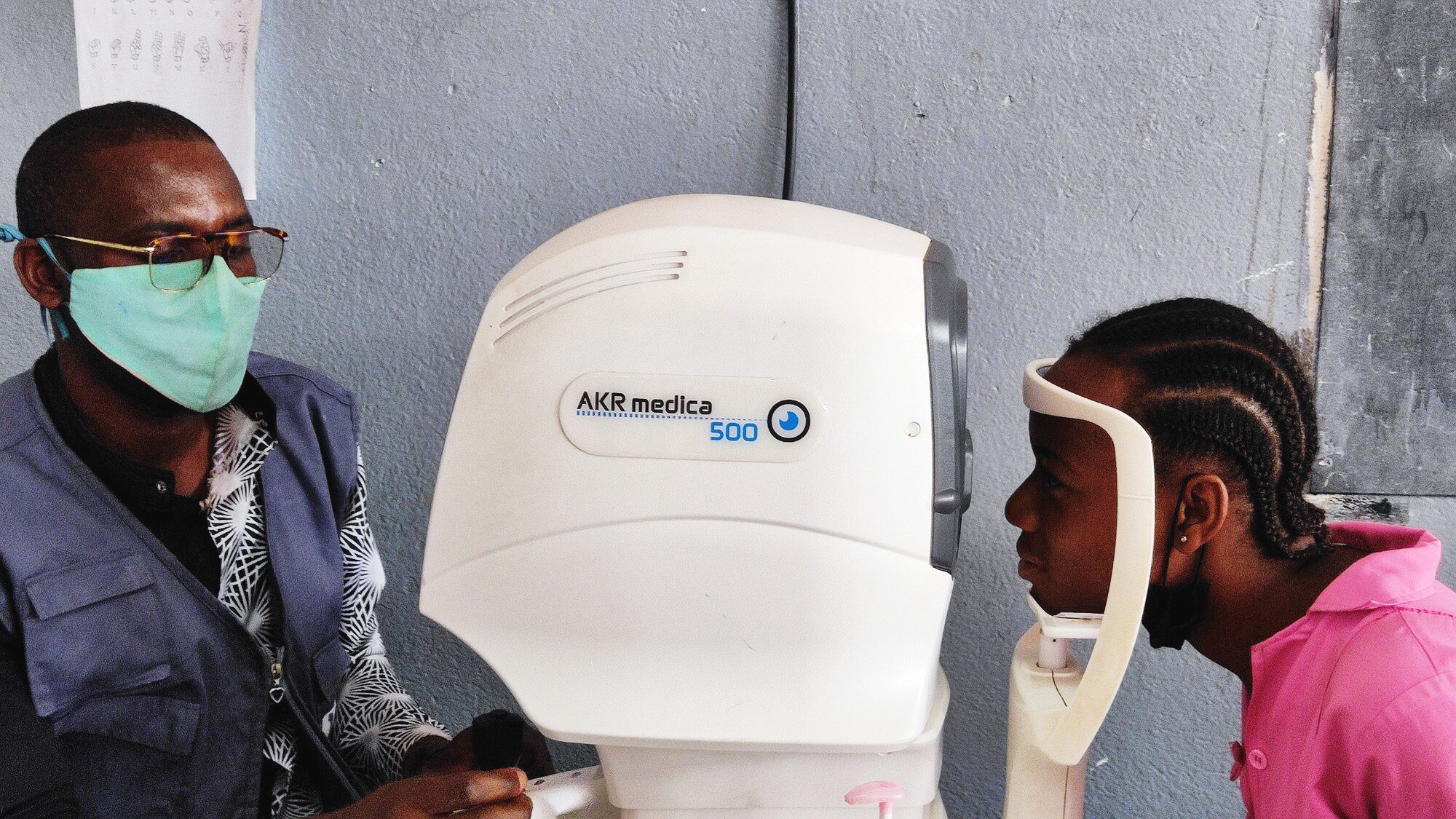
Nearly three decades ago, Helen Keller Intl launched its school-based vision program in New York City. By meeting students where they are and reducing the need for families to travel to other sites, we have been able to reach as many children as possible in an efficient and cost-effective way.
We screen all students right in school, and those whose initial screening indicates some visual impairment are seen on-site by a trained clinician or optometrist for further examination. For students who are diagnosed with refractive errors, we provide prescription glasses — at no cost to them or their families. In rare situations when students may have more complex eye disorders, we connect them with partner hospitals or clinics to receive additional care, also without financial burden.
Notably, the properly prescribed glasses we provide are new, made with fashionable frames that the students choose themselves from a wide selection — and that they are excited to wear. We’ve learned that providing options to choose from helps children feel confident and can make all the difference in motivating them to keep wearing their glasses.
Building Equitable Eye Care in Cameroon
Two years ago, in partnership with USAID’s Child Blindness Program, the Cameroon Ministry of Public Health, the Ministry of Secondary Education, and Acha Eye Hospitals, Helen Keller launched our first school-based vision program in Yaoundé, Cameroon. “We know the problem of vision in various schools is serious. If students don’t see well, it can compromise their output,” said Dr. Elizabeth Attha, Chief Medical Officer of Acha Eye Hospitals.
Adopting the best practices from our US program, Helen Keller coordinates with schools to maintain services on site. We train teachers and nurses to conduct basic vision exams and give them additional background knowledge about why vision care is needed, which they then share with students and caregivers. Because vision services are so scarce in Cameroon, many families may not understand their importance. But when children and parents learn from trusted members of the community, they are eager to participate in the vision screenings.
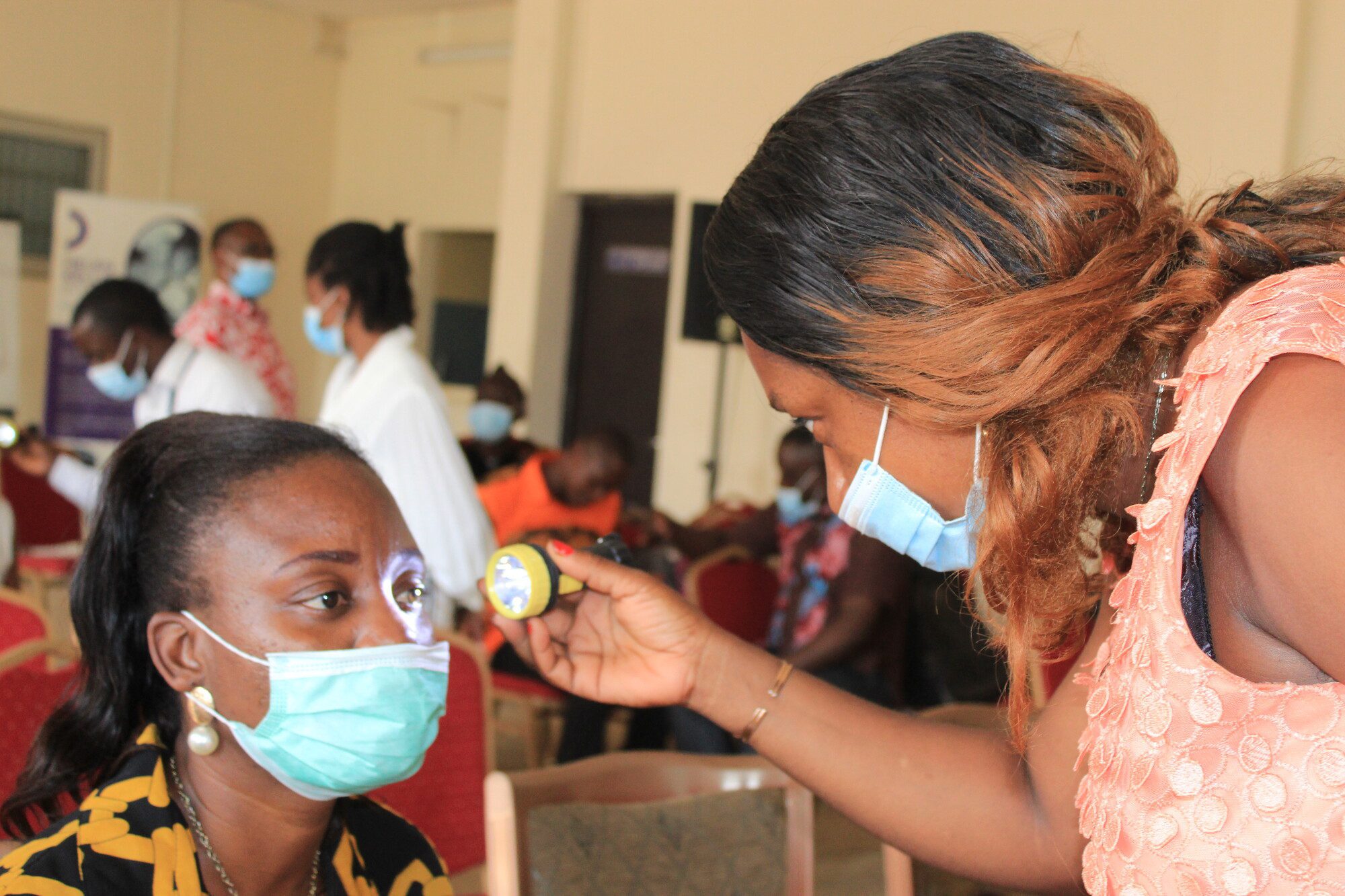
As in the US, the students who need prescription lenses receive them at no cost. (In Cameroon, the frames are donated by the Essilor Vision Foundation.) Parents are counseled on how to care for their children’s eyeglasses and ongoing eye health.
Teachers and nurses are also trained to look for eye conditions like conjunctivitis, trachoma, and pediatric cataracts. When possible, children are treated with medication in the schools, but students with serious conditions are given referrals for care at the local hospital.
Helping Children to Dream Big
Glasses and other treatments for preventable vision loss can make all the difference in a child’s life — expanding opportunities to succeed in school, make friends, and achieve their dreams. After launching this work in Yaoundé in 2021, we established these services in eight additional districts in the country’s Central and West regions. Our goal is to provide this inclusive eye care to all students in Cameroon.
Because of generous support like yours, by the end of 2023, more than 77,000 students across 124 schools have been reached through this scalable program of school-based vision care services.
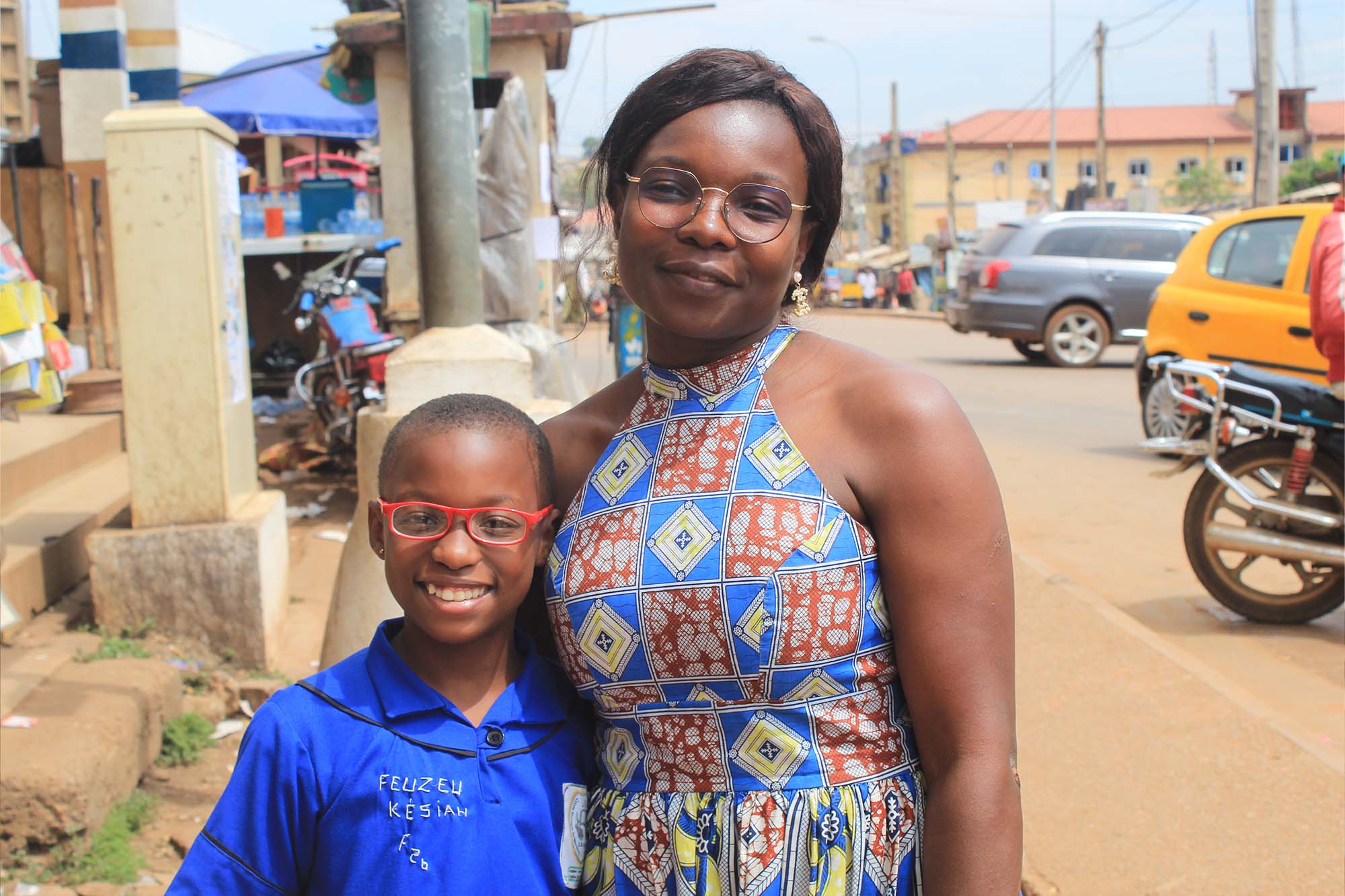
Help ensure all children can realize their true potential.

